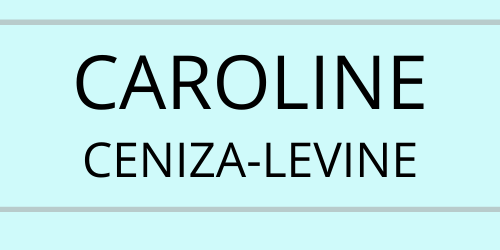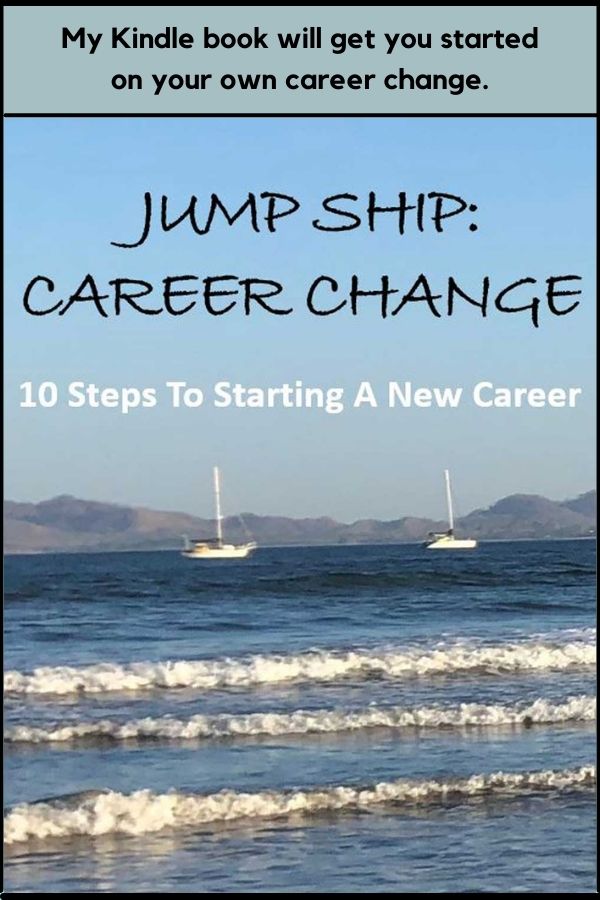You have limited time in a job interview – learn how to sell your skills, expertise and years of experience in a concise and compelling way
You have limited time in a job interview, and yet you have multiple skills, areas of expertise and years of experience to cover. Rambling is a big pet peeve among recruiters so you want to be concise. At the same time, you want to cover everything your background has to offer so you can sell yourself for the job.
At the same time, you want the interview to be a conversation, in order to develop rapport and allow a genuine relationship with the interviewer. Likeability matters to employers – we all want to work with people we get along with. Having a back-and-forth between you and the interviewer also ensures that they have their questions and concerns addressed.
Here are 10 steps to ace a job interview:
1 – Have a strong opening
Provide an overview of your background because you can’t assume that the interviewer even read your resume (they might have been assigned to meet you at the last minute!).
Tailor your opening remarks to what is most relevant for the particular job you’re meeting about. This establishes that you are a fit for the job right from the start of the interview and is particularly appealing to the interviewer who has a checklist of items they are evaluating.
Develop rapport by highlighting items you have in common with your interviewer (you should research the person you’re meeting, not just the job).
Share your excitement for the job by including why you’re interested in the job or passionate about the industry – employers want to hire people who want to be there.
2 – Recognize that the interview starts earlier than you think
Your interview starts when you schedule the interview. If you make it difficult for the recruiter to reach you, they will likely remember that when you finally meet (or it might even cost you the opportunity to meet at all).
If you sound unprofessional or send sloppy emails as you coordinate back and forth, that also reflects poorly. I once had a candidate lose a callback round after a strong first interview because his follow-up email was riddled with typos.
If you’re meeting live, many employers will gauge how you act in the reception area and how poised you are when you’re greeted and head back to the meeting room.
The interview is not just the actual conversation, but all of the interaction leading up to it.
3 – Control the agenda of the interview
Ideally, you have a chance to open in a way that covers your relevant strengths for the job and your genuine desire to work there. But if the interviewer doesn’t give you a general question like, “Tell me about yourself” or “Walk me through your resume” that allows you to provide a compelling overview for why you are the perfect fit for the job, then you have to make sure you hit those points during the interview.
Include tangible or measurable results, such as revenue you generated, costs you saved, profits you increased, processes you improved, customers you served, etc. Don’t assume that your value is obvious or that the interviewer will ask you just the right questions to demonstrate your value. Even if you’re unemployed, you can have tangible results through volunteer work or projects you initiate.
Have an outline for how you would get the job done – this way, the interviewer can actually see you in the job.
When you include these selling points, regardless of what the interviewer asks, you control the interview agenda.
4 – Avoid rambling by keeping your project details to these 5 areas
The best interview response includes an example, so you’re showing, not just telling (show and tell is for kids!). However, a common mistake candidates make when sharing previous roles or projects is to give too much detail and therefore ramble in their response.
Stay concise by limiting your project details to these five areas:
- Who did you report to or who sponsored the project?
- What was the objective?
- What did you deliver?
- What actually happened?
- What did you do and what did everyone else on the team do?
For example: I worked for the Head of International Marketing (question 1) on a new product for our Japan consumers (question 2). We presented a product prototype (question 3) for a new game aimed at middle-schoolers. The market potential was forecasted in the hundreds of millions (more on question 3), and competitive research (more on question 3) showed there wasn’t anything else in the market currently. I left before we launched, but we were approved for a team and budget to pursue (question 4). I led the overall team that developed the prototype and market overview, managing three people – a product engineer for the prototype, a market research to look at the competitors and an analyst for the projections (question 5).
5 – Be prepared without sounding rehearsed
Preparing your projects according to the framework above ensures you have proof points available for your interview. Focusing on your projects also gives structure to your preparation: there are lots of potential interview questions, arguably too many to prepare all of them; however, you have a finite set of stories and can review your resume line-by-line to capture and prepare all of your best examples in advance. Whatever question you get, think of the story that best matches, not a canned, impersonal answer.
Telling a story will already make your delivery more conversational and less rehearsed. You can also practice delivering your stories in multiple ways, thereby ensuring you are ready to tailor them to the interviewer or the question you get. For example, start at the end with the result or let the story unfold chronologically or highlight things you learned or did that are specifically relevant to the company.
6 – Expect the best, but prepare for the worst
Developing rapport with the interviewer is important, but not all interviewers will be so welcoming. Some people are just not friendly. Some interviewers think their job is to probe, push back or even stress you out and see how you handle it.
Whatever you do, don’t escalate the situation by mirroring the negativity. Answer the question in a neutral voice without getting defensive. Give the interviewer the benefit of the doubt (i.e., they aren’t mean even if their line of questioning seems mean-spirited).
Think of challenging questions as opportunities to highlight your strengths, prove how much you know and demonstrate your grace under pressure.
7 – Prepare for difficult questions
You can avoid getting thrown by difficult interviewers by preparing for difficult questions. You might be asked for a weakness, the biggest mistake you made, or your least favorite boss, role or colleague.
For these difficult questions, prepare examples so that you answer the question as specifically as possible without letting the interviewer’s imagination think of the worst.
For example, instead of just saying your weakness is impatience (which the interviewer might equate with losing your temper or something worse than you mean), share a specific story of when a deadline was looming and instead of trusting your direct report to come through with their part, you jumped in and took over. Share the lesson – e.g., you realize this sets a bad precedent for future collaboration and denies your junior colleague the opportunity to contribute. Highlight how you have fixed or are fixing the problem – e.g., knowing your tendency to jump in, you build in extra time on projects for training and feedback along the way.
Then move on from the difficult question back to the job at hand. This pulls the interviewer out of the negativity and into that bright, positive future of working together. It also pulls you out from the anxiety and back into being the excited and confident best-person-for-the-job.
8 – Prepare for video and phone interviews differently than live interviews
Even before the Covid-19 pandemic moved business to a virtual environment, interviews were being conducted by phone and video, not just live – the interview process changes over time.
With phone interviews, you lose all the non-verbal communication – e.g., eye contact, facial expressions, gestures. Your verbal performance is all you have – not just the content of what you’re saying, but also your tone, inflections, volume and pacing.
With video interviews, it simulates live interaction but is two-dimensional, so it’s a different medium. You also have the technical challenges – e.g., connection issues, microphone quality, webcam placement.
For phone interviews, remember the four-S method:
- Stand up – sitting cuts off your energy. You will sound more enthusiastic if you stand.
- Stock up – have your resume, a glass of water, pen and paper for notes all available so you are not scrambling for what you need during the conversation.
- Suit up – you will speak more professionally if you dress professionally. Also, if the interviewer decides last-minute to do a video call, you’ll be ready.
- Shut up – when you can’t see the interviewer trying to ask a question or rolling their eyes and losing interest, you may ramble more than you realize. Make a conscious effort to pause (i.e., shut up) every few sentences so that your interviewer can interject without having to interrupt you.
For video interviews, practice with the technology so you know your Internet connection is strong enough, your microphone is clear and not too loud and you know where to look at your webcam so you are making eye contact. All of the interview best practices still apply, plus you have the technology to worry about, so don’t leave it to the last minute to know you can get on that video call without a hitch.
9 – Prepare for callback interviews differently than earlier interviews
Callback interviews are not the same as earlier interviews because the company knows more about you, and your competition will be harder.
Prepare for pushback – now that companies know more, they can ask more probing questions. If they had any hesitations from something you said or did in previous rounds, they’ll bring them up here. Even if you didn’t do something, they are comparing you to the competition so may ask more difficult questions overall to see who rises to the top.
You’re also more tired – physically, mentally and emotionally – after multiple rounds of interviews. You probably have gotten similar questions or even the same question asked multiple times. It’s easy to sound frustrated or just low energy at repetitive questions if you’re not careful.
References also might come into play at the final stages, not just when an offer is decided, so you want to have these lined up at the callback stage.
10 – Use the time AFTER the interview to maintain momentum
Just like a job interview starts earlier than the official question-and-answer conversation, it finishes later than the conversation ends.
How you follow-up (yes, you should send a thank you, and yes, it can be a deciding factor in your application!) also matters. Whether you stay top of mind as the deliberation process drags on can mean the difference between you getting it versus another candidate who stays connected with the decision-makers and therefore comes across as more interested and more ambitious.
What you do now will prepare you for further interview rounds (or not) – this includes taking stock of your interview performance so you know how to improve and where future interviewers may probe further, doing further research using what you learned from earlier interviews so you can tailor future interview responses even more specifically, resting and replenishing because interviewing is tiring and generating more leads outside of this one so you can exude even more confidence since you aren’t only relying on this interview process for your next job.
Acing a job interview is doable with planning, preparation and PRACTICE
Remember that the before and after to a job interview is just as important as the actual interview conversation. Prepare for difficult questions and difficult interviewers. Control the agenda, including a strong opening, relevant stories and concise stories (answer the 5 key questions about each story to prevent rambling). Don’t forget about the special challenges of phone and video interviews and callback interviews.
Practice all of these things by conducting mock interviews (ideally with someone who has hired before and can role play a convincing interviewer!). You don’t want your first job interview in a while to be the real thing. Practice what you’re going to say and how you plan to say it – you’ll find that we don’t speak out loud as eloquently as we imagine the conversation in our heads. Practice by phone and video. Practice with someone who can push back. Practice to bring all your planning and preparation to life and ace that job interview.






